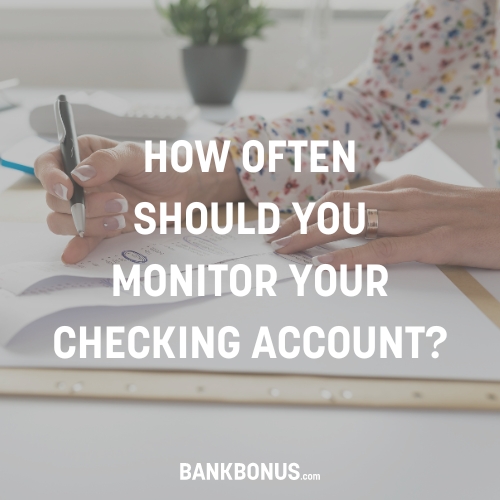Learning how to invest money effectively is a crucial step towards reaching your financial goals. Fortunately, investing has never been easier.
Even if you don’t have a huge amount of money, you can start playing the game and get your money working for you. However, it’s important to understand that investing takes time, research, and the desire to learn and adapt.
Read on for some practical tips for getting started on your investing journey.
How to Invest Money: Step-by-Step
Here are some steps you can take as a first-time investor to reach your financial goals and invest like a pro.
- Define Your Investing Goals
- Determine Your Budget
- Choose Your Investing Style
- Pick an Investment Account
- Figure Out Your Risk Tolerance
- Decide What to Invest In
1. Define Your Investing Goals
Before you start investing, you need to set clear investment goals to guide your decisions. Your investment goals will help you determine the right time horizon, risk tolerance, and asset allocation. Investing goals boil down to short-term and long-term goals:
- Short-term goals: Short-term investment goals usually have a time horizon of less than five years. Some examples are creating an emergency fund, saving for a down payment, or paying for college. It’s best to use liquid investment vehicles that pose a lower risk for these types of goals, such as certificates of deposit (CDs), money market accounts (MMAs, and high-yield savings accounts from banks and credit unions that pay high interest rates.
- Long-term goals: Long-term investment goals beyond five years often involve wealth accumulation and retirement planning. With these investments, you can take advantage of higher returns on potentially higher-risk investments to achieve significant growth over an extended period of time. You might hold these investments in an account like a 401(k) or IRA.
2. Determine Your Budget
When it comes to investing, another key step is to establish your budget. Take a look at your financial situation and determine how much you can comfortably invest while still covering your daily expenses and emergency funds.
Start by calculating your monthly income and subtracting your fixed expenses, such as rent, utilities, and groceries. The remaining amount is what you can potentially allocate to investments.
By setting a budget, you’ll ensure that you’re investing within your means and minimizing any potential financial strain. This approach will give you the confidence to make sound investment choices that align with your overall financial strategy.
Be realistic about your financial goals and risk tolerance, and consider seeking the advice of a certified financial planner (CFP) if you aren’t sure how much to allocate. There are also plenty of helpful online calculators for budgeting and investing to make things simple.
3. Choose Your Investing Style
Once you’ve established your investing goals, you need to determine your level of involvement. Here are a few options to consider:
- DIY: If you want to actively manage your investments, you can open an account with an online broker. This method gives you control over your investment decisions, allowing you to choose the assets you invest in and execute trades with minimal guidance.
- Robo-advisor: Robo-advisors use algorithms to build and manage portfolios based on your risk tolerance and financial goals. With robo-advisors, beginners can benefit from low-cost diversified investment options and simplified account management. These platforms also provide round-the-clock monitoring and automatic adjustments to ensure your investments are on track.
- Financial advisor: For the most personalized guidance, you can work with a financial advisor or broker. Your portfolio manager will make decisions based on your unique personal finance goals and adjust your investments as needed to keep you on target. They can also offer broader financial planning services.
4. Pick an Investment Account
Choosing the right investment account is another important decision. This can significantly impact your investment options, taxes, and overall investment strategy. There are a few types of investment accounts to consider:
- Brokerage accounts: Brokerage accounts offer a wide variety of investment options, including stocks, bonds, mutual funds, and exchange-traded funds (ETFs). While some brokerages charge fees for each trade, others offer commission-free trades. It’s essential to consider the trading options, fees, and the types of securities available before opening a brokerage account.
- Retirement accounts: 401(k)s offered by employers and Individual Retirement Accounts such as Traditional IRAs and Roth IRAs are designed specifically for retirement savings. One of the key benefits of these accounts is the potential for tax advantages.
5. Figure Out Your Risk Tolerance
It’s essential to establish your risk tolerance before investing. Your risk tolerance is basically how comfortable you are when there’s volatility in the market and your investment returns dip.
To assess your risk tolerance, you need to consider factors like your investment goals, financial situation, and emotional temperament.
A good starting point is to ask yourself how much money you can afford to invest and potentially lose without significantly impacting your financial stability. Consider your investment timeline and how soon you may need to access the funds.
Additionally, think about how comfortable you are with the possibility of your investments experiencing short-term losses in pursuit of long-term gains.
Understanding your risk tolerance is key to crafting an investment strategy that aligns with your individual circumstances and helps you avoid making impulsive decisions during market fluctuations.
6. Decide What to Invest In
Here are a few common types of investments that you can get started with right now. To build a diversified portfolio, consider investing in a variety of assets.
- Individual stocks: Purchasing shares of an individual, publicly traded company is the simplest stock market investment option. If the company does well, the value of your shares goes up, and you make money. If it does poorly, that value goes down. Some platforms like Robinhood allow you to invest in fractional shares of stocks with as little as $1.
- Mutual funds & ETFs: Rather than putting all of your eggs into a single basket, investing in mutual funds, index funds, and ETFs spreads your investments out between various stocks, corporate bonds, or other assets. The result is a steadier, more stable investment for the long haul. You can invest in diversified funds with most brokerage accounts or robo-advisor platforms like Acorns.
- Cryptocurrency: Crypto is considered a high-risk, high-reward investment. You can reduce your risk by focusing on established coins like Bitcoin (BTC), Ethereum (ETH), or Litecoin (LTC) from crypto-friendly banks. While all of these options are still volatile, they don’t pose the same risks as coins that are new to the market.
- Real estate: Another popular strategy for diversifying your portfolio is investing in real estate. Historically speaking, the biggest roadblock to getting into real estate investing has been upfront capital. But today, new investors can get started with a low minimum investment requirement on several real estate investment platforms.
Frequently Asked Questions
What is the best way to invest my money?
There is no all-around best investment that’s superior to all others, all the time. So rather than thinking about the best avenue, think about building the best possible investment strategy.
This involves conducting market research, diversification, and setting realistic expectations. If you have a sound investment plan, you’ll come out on top more often than not.
How can I grow my money fast?
If you want to grow your net worth quickly, you need to focus on high-risk, high-reward opportunities. But remember that there are few absolutes in investing.
Get-rich-quick schemes are rarely legit, and most avenues that could make money fast take a bit of luck. While it can be tough to be patient, you’re much better off focusing on your long-term goals.
What investment has the highest return?
Historically speaking, the US stock market is generally known as the investment that comes with the highest annual returns.
However, this completely depends on how you invest. Poor financial planning will lead to a poor return, no matter how you allocate your money.





No comments yet. Add your own